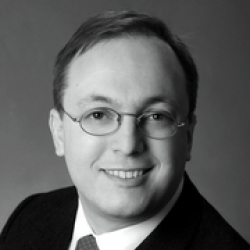
Blood is the most important source for routine in-vitro diagnostic information, such as the concentration level of plasma biomarkers and cells. Only in special cases, such as leukemia diagnostics, functional analysis is performed with fluorescence flow cytometry. However, the rich information content of blood cell functions is not routinely available due to the complexity of today's diagnostic workflow. Furthermore, sample logistics and sample preparation efforts cause imprecision of the test results. In my presentation, I review the single cell analysis challenges with opaque whole blood as sample matrix and the clinical unmet need for point of care usability. To demonstrate how cell function diagnostics can be achieved at the point of care, I will discuss my research efforts to integrate microfluidic workflows and giant magnetorestistance sensors.
